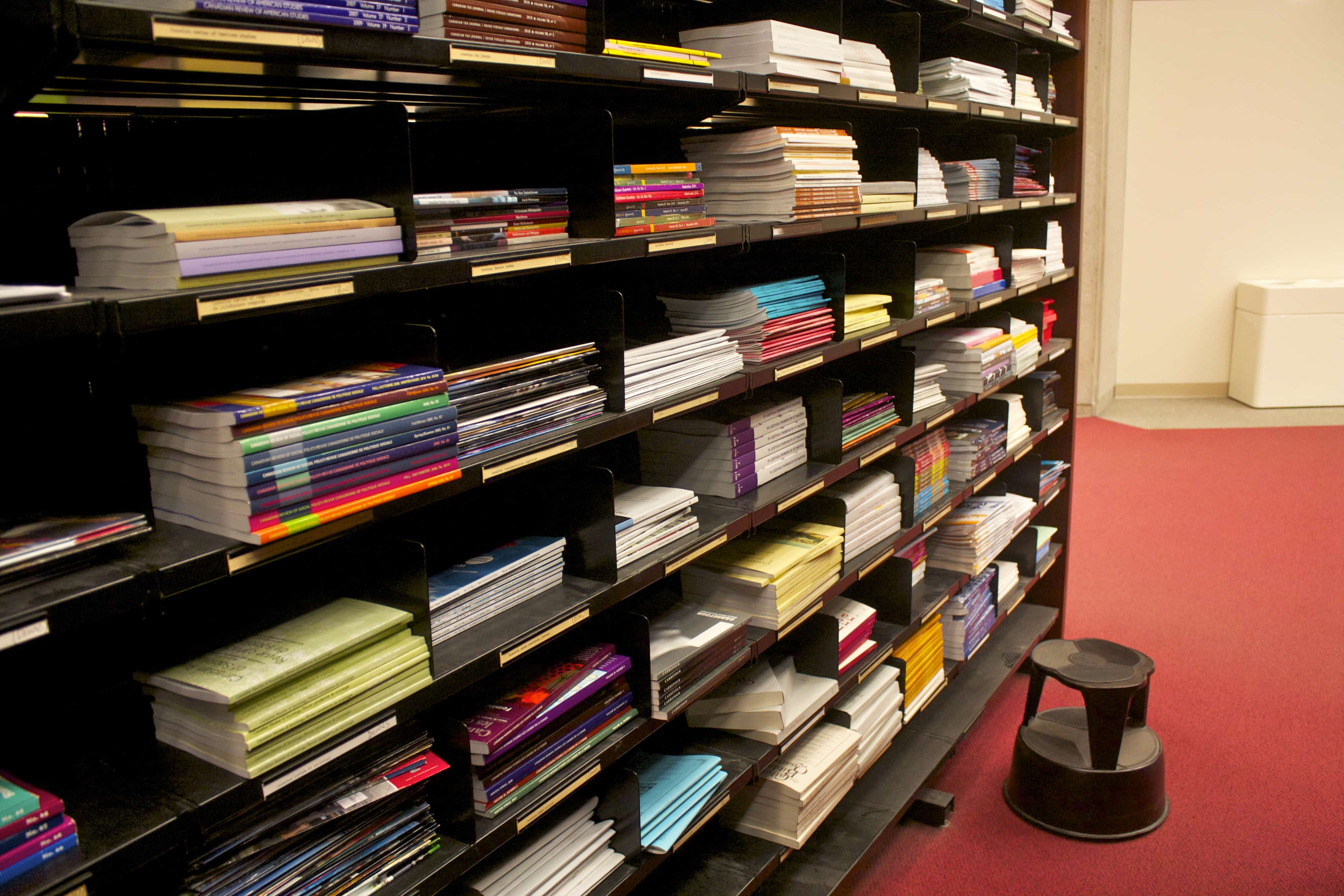The University of Toronto and Access Copyright are in the midst of discussing a new deal concerning how the university deals with copyright, though some are questioning the need to have an agreement with Access Copyright at all.
On June 6, vice-president and provost Cheryl Misak wrote to Access Copyright to cancel the university’s renewal of the agreement, requesting that negotiations take place first.
Access Copyright is a not-for-profit agency, which collects revenues from organizations, such as universities, who duplicate copyrighted material. It then remits those revenues back to the authors and artists who created the original work.
“Instead of caving in to Access Copyright and forcing students to unnecessarily pay thousands of dollars, the University of Toronto should be a leader in institutional policies and rely upon its own experts on copyright, similar to the University of British Columbia,” said the University of Toronto Students’ Union (UTSU) president Munib Sajjad.
Sajjad issued a formal statement on the UTSU’s website urging the university not to renew the agreement, calling the refusal a “victory for all students and researchers”.
The statement argues that a renewal is unnecessary, and goes on to list a number of prominent supporters for cancelling the agreement, which include “prominent Copyright law professors Ariel Katz of the University of Toronto, Michael Geist of the University of Ottawa, the Canadian Association of University Teachers, and other academics and legal experts.”
The controversial agreement, which was renewed last year, changed the flat rate per student from $3.38 to $27.50 after a proposed increase to $45.00 was rejected.
Western University’s agreement with Access Copyright is very similar to that of U of T, and Western’s administration has also signaled its discontent with the proposed agreements. Access Copyright responded to both institutions in one letter, noting that the agency was open to negotiations that would create an agreement that is “acceptable to [each of] these valued partners.”
In its letter, the agency cited the “fair dealing” segment of the copyright law and said that an ideal future in the licensing world would be one of “reasoned interpretation” of this specific law that was not “unduly restrictive of content usage in education or the viability of developing content for use in education.”
Access Copyright is facing challenges on all fronts, as many universities opted out of signing an agreement with the agency and the elementary and secondary public schools in Ontario have now decided to follow suit. The Ontario Public School Boards’ Association (OPSBA) recently received tariff invoices from Access Copyright for 2013-2015. However, after legal counsel, they have decided that they can meet their copying needs without this proposed tariff. The Ontario Government’s education website outlines the copyright parameters for its teachers. Now, elementary and secondary schools in the province will move forward without Access Copyright.
The school boards’ decision is the latest in a long list of academic institutions across Canada, including a total of nineteen universities, who have announced they will not continue to have an agreement with Access Copyright. Universities on this list include Queen’s, Carleton, York, Waterloo, and the University of British Columbia (UBC).
The decision to leave is influenced in part by legal changes, which have expanded what can be copyrighted without paying.
Of particular importance is an amendment made on June 29, 2012 to the Canadian Copyright Act called the Copyright Modernization Act, which expanded the fair dealing provision to identify education as one of its eligible purposes. The Act reads: “Fair dealing for the purpose of research, private study, education, parody or satire does not infringe copyright.”
The advantage of signing with Access Copyright has always been centrality and convenience. Access Copyright boasts a repertoire of over 22 million works, eliminating the need to contact the author for permission each time one wishes to copy or reproduce their work.
UBC announced in May of 2012 that they would not be renewing their agreement with Access Copyright. Allan Bell, director, library digital initiatives at UBC, said, “Ultimately we think it was the right thing to do. Based on changes to the law, we believe we’re in accordance with the copyright laws.”
While many educational organizations are leaving Access Copyright, the legal ramifications remain far from clear.
In April 2013, Access Copyright sued York University, alleging their interpretation of fair dealing violated copyright law. In an article published by the Western Gazette, the executive director of the Canadian Association of University Teachers (CAUT) James Turk said, “New copyright laws and practices have rendered Access Copyright’s business obsolete and it is sad that they think they can revive it through pointless litigation.” The lawsuit is ongoing. Many consider the York case to hold implications for Access Copyright’s future, with a precedent to be set in any outcome that will either bolster or severely damage the non-profit agency.
U of T is currently in negotiation with Access Copyright and would not comment on the status of negotiations, or what alternate options the university is seeking if they elect not to renew the contract.
The current agreement is binding until December 31, 2013, although negotiations would likely need to conclude well before then to permit any new agreement to receive proper approvals through the university’s governance structure.


